Cannes kicks off with a time-travel film by Woody Allen – and it’s good!
Woody Allen flanked by two of his actresses: Léa Seydoux, left, and Rachel McAdams. (Photo: Mehdi Chebil).
Everyone knows the French love Woody Allen. Hence the two journalists who tried to elbow me out of the way on line for the press screening of Allen’s “Midnight in Paris”, the festival’s opening film.
Not so fast. This self-avowed Woody Allen fan was, like many others, waiting in an already-scorching morning sun, head filled with questions. Would Woody pull off a good movie after the insipid “You Will Meet a Tall Dark Stranger?” Would the City of Lights inspire him? Would the film be filled with touristy clichés that have nothing to do with the reality of the French capital? Would he be kind with Parisians or paint them as the stuffy, pretentious snobs of the final episodes of “Sex and the City” and countless other US movies and TV shows? And would French First Lady Carla Bruni humiliate herself onscreen?
The answers to those questions are, respectively: Yes; Yes; Yes and No; Neither; and No – but, Carla, don’t quit your day job. Or however it is you spend your days.
“Midnight in Paris” is a delightful festival opener (endorsed by hearty laughs and applause from the press), unlike last year’s dour “Robin Hood”. To put it in context: it’s hardly a masterpiece on the level of Allen’s “Annie Hall”, “Manhattan”, “Hannah and Her Sisters”, or “Crimes and Misdemeanors”, or even an exciting change of pace like “Match Point”. But “Midnight in Paris” is fresh and fast-moving, light but deeply-felt, a work of charm, imagination, and even surprise – something not exactly typical of Allen’s recent stuff.
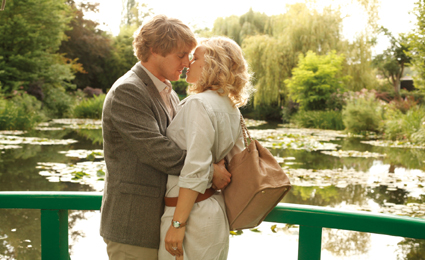
The movie, which is about dissatisfaction, longing, and the eternal tension between accepting reality and wallowing in fantasies, opens with a long montage of Parisian street scenes: sun-kissed café terraces, cobblestone alleys, lushly manicured parks, bustling squares, people armed with umbrellas rushing through the rain. These are postcard images – not very original – and they keep going beyond the point of reason. But it’s a brave way to start things off, as if Allen is pre-emptively thumbing his nose at the haters to say: “Yes, these are clichés, but I love these clichés, and this is what Paris looks like in its different moods. So let me indulge.”
“Midnight in Paris” centres on a couple of American lovebirds on vacation in Paris (Owen Wilson, surprisingly excellent as a Woody Allen stand-in, and Rachel McAdams, doing her best with a thinly written role), who find themselves drifting apart. While she goes shopping and flirts with another American (more stuffy and pretentious than any of the Frenchies on display), he wanders the streets every night and….(SPOILER ALERT) finds himself mysteriously transported back to the Paris of the 20s, where he boozes it up, dances, flirts, and swaps secrets with his cultural idols.
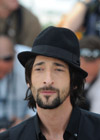 Yes, no joke. Woody Allen has made a movie about a frustrated twenty-first century American writer who becomes drinking buddies with Hemingway, Picasso, F. Scott and Zelda Fitzgerald, Gertrude Stein (Kathy Bates, hamming it up), and Salvidor Dali (Adrian Brody, hamming it up even more), among others. He also falls in love with an artist groupie, played with an alluring blend of charm and sadness by Marion Cotillard.
Yes, no joke. Woody Allen has made a movie about a frustrated twenty-first century American writer who becomes drinking buddies with Hemingway, Picasso, F. Scott and Zelda Fitzgerald, Gertrude Stein (Kathy Bates, hamming it up), and Salvidor Dali (Adrian Brody, hamming it up even more), among others. He also falls in love with an artist groupie, played with an alluring blend of charm and sadness by Marion Cotillard.
The time-travel/who’s-who-of-famous-past-intellectuals is a gimmick -- and the alternation with the protagonist’s waking life becomes repetitive -- but it’s a risky gimmick that Allen carries out with energy, gathering a comic momentum he hasn’t shown in a while. Unlike Allen’s last film, “Midnight in Paris” feels both giddy and heartfelt, and sometimes downright inspired – down to the differing visual schemes the director uses: warm yellows for happier daytime scenes, washed-out, almost sterile pale colours for more anxious ones, and smudged, dreamy dark reds and smoky blues for the night-time fantasies. Certain moments are breathtakingly lovely: a close-up on Wilson and Cotillard as they dance – literally, a man in love with his fantasy – is one of the most purely romantic images Allen has concocted in years.
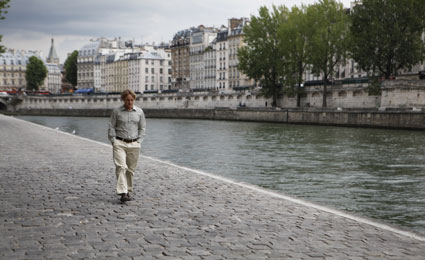
The movie also feels personal. Allen is a nostalgic filmmaker – just listen to the music in his movies, his characters’ cultural references, and their way of speaking -- and in this film, he confronts his own nostalgia directly. Would we really be happier in a different time or place, or is that an illusion? Should we make the best of our reality or pursue fantasies? Is Paris really a city of lovers and artists, dreams and good living?
As for the common question of whether Allen’s movies were better before, the answer is still yes. But “Midnight in Paris” at least allows a small glimmer of hope that this might not always be true.


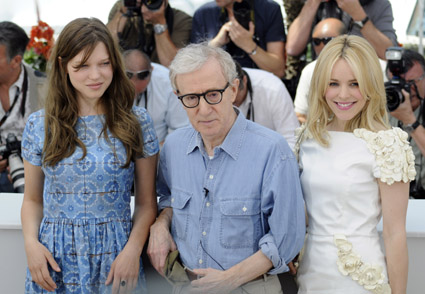
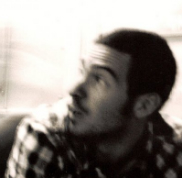


3 Comments
Post new comment